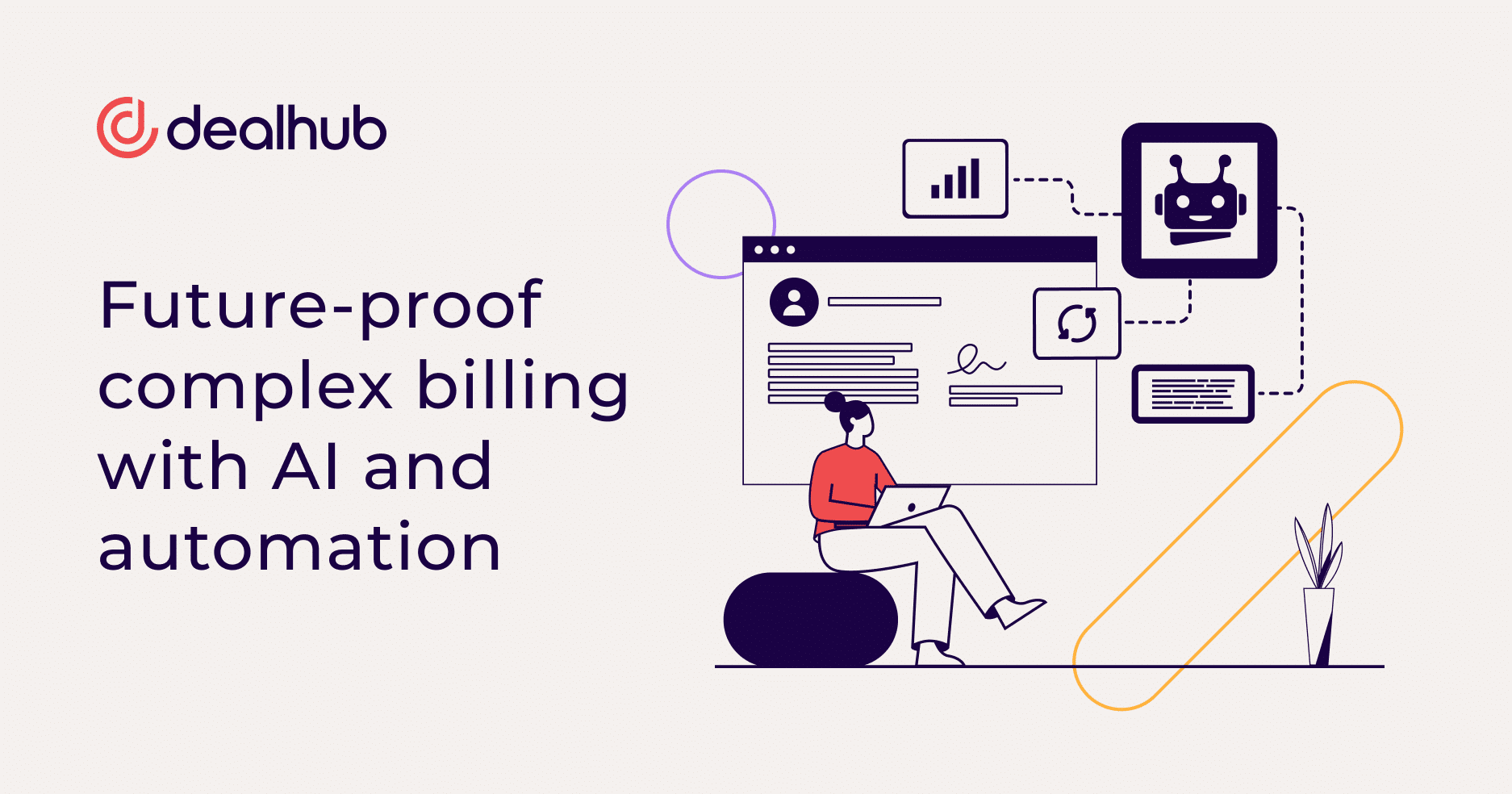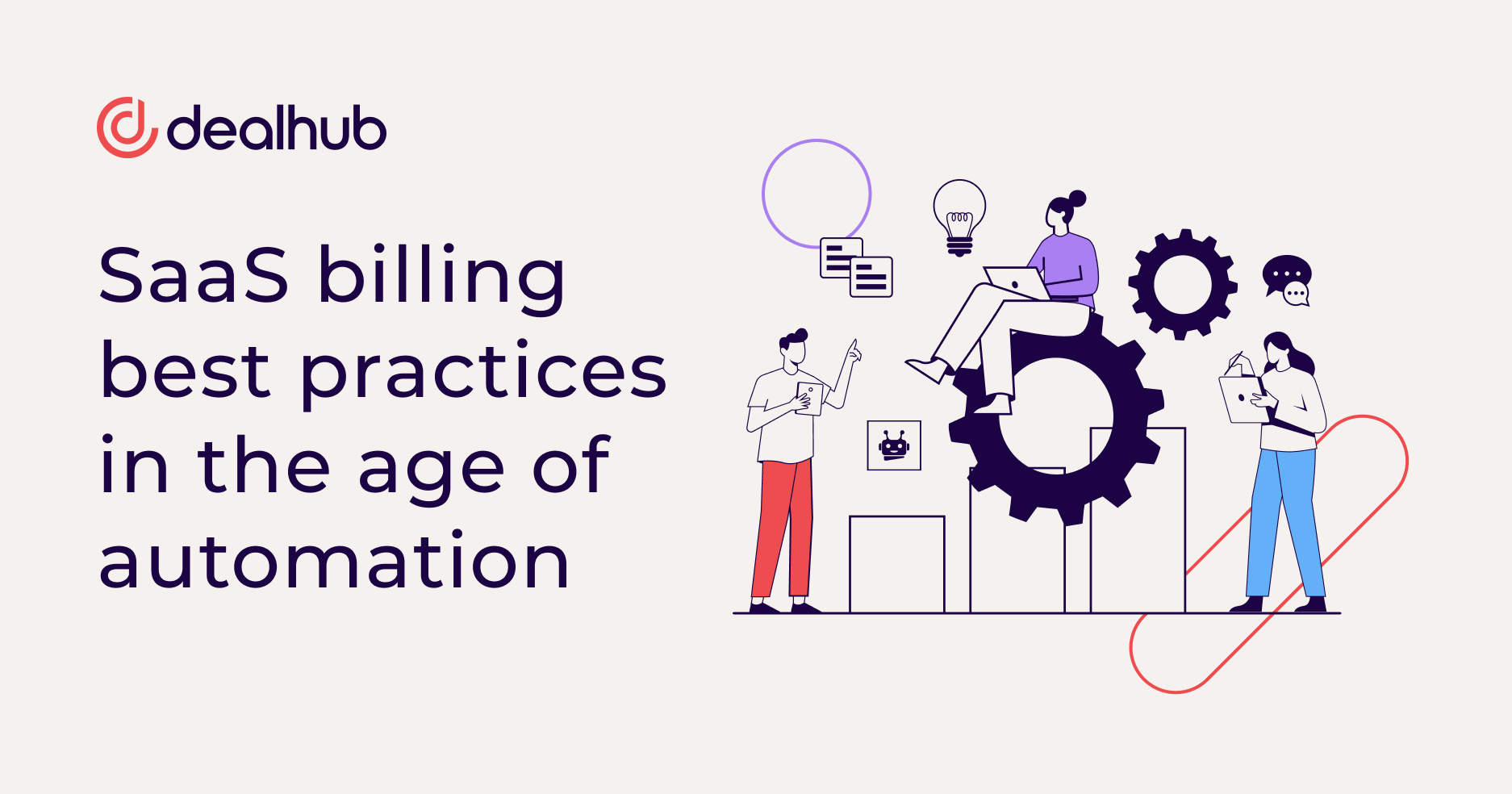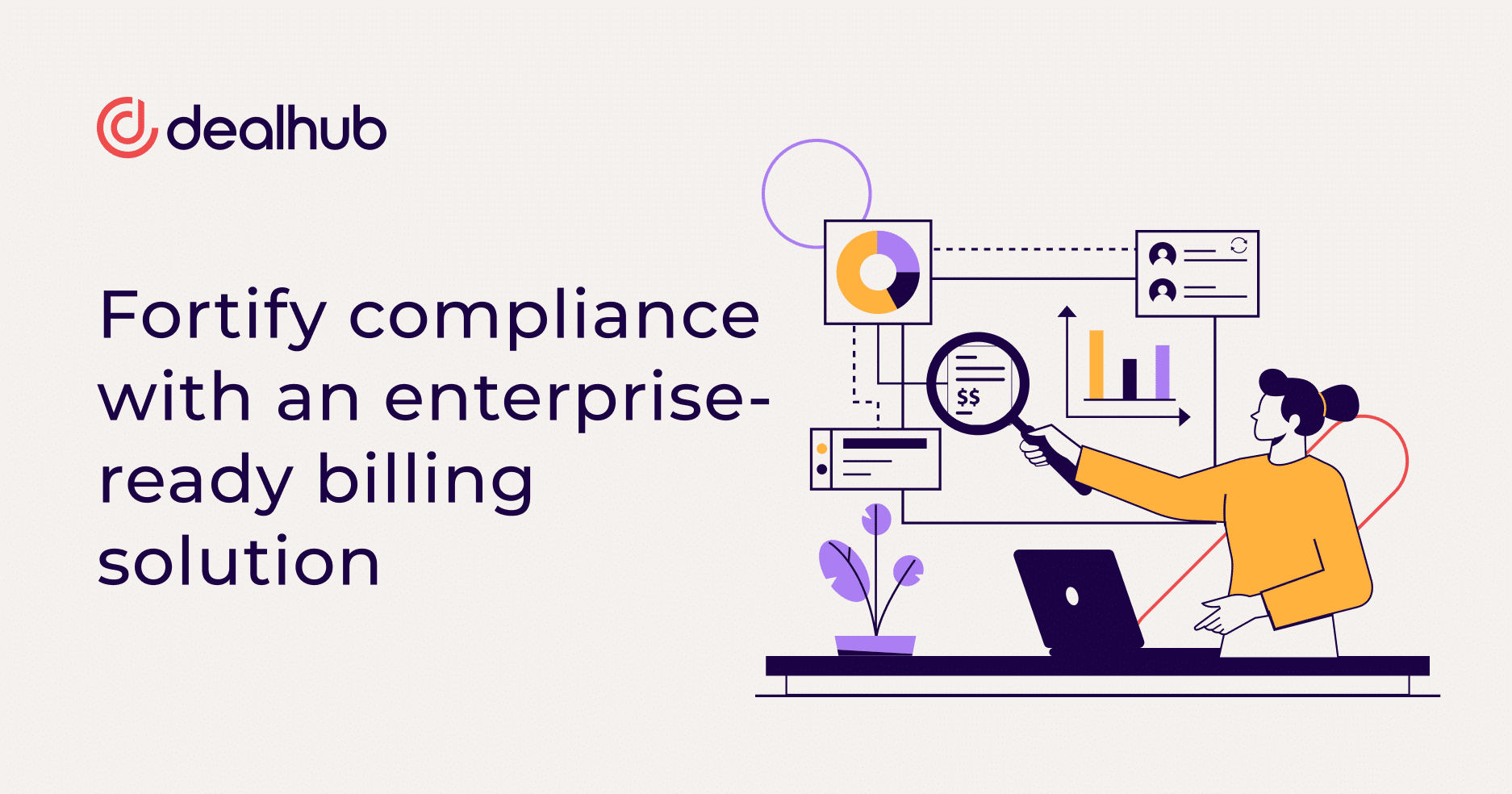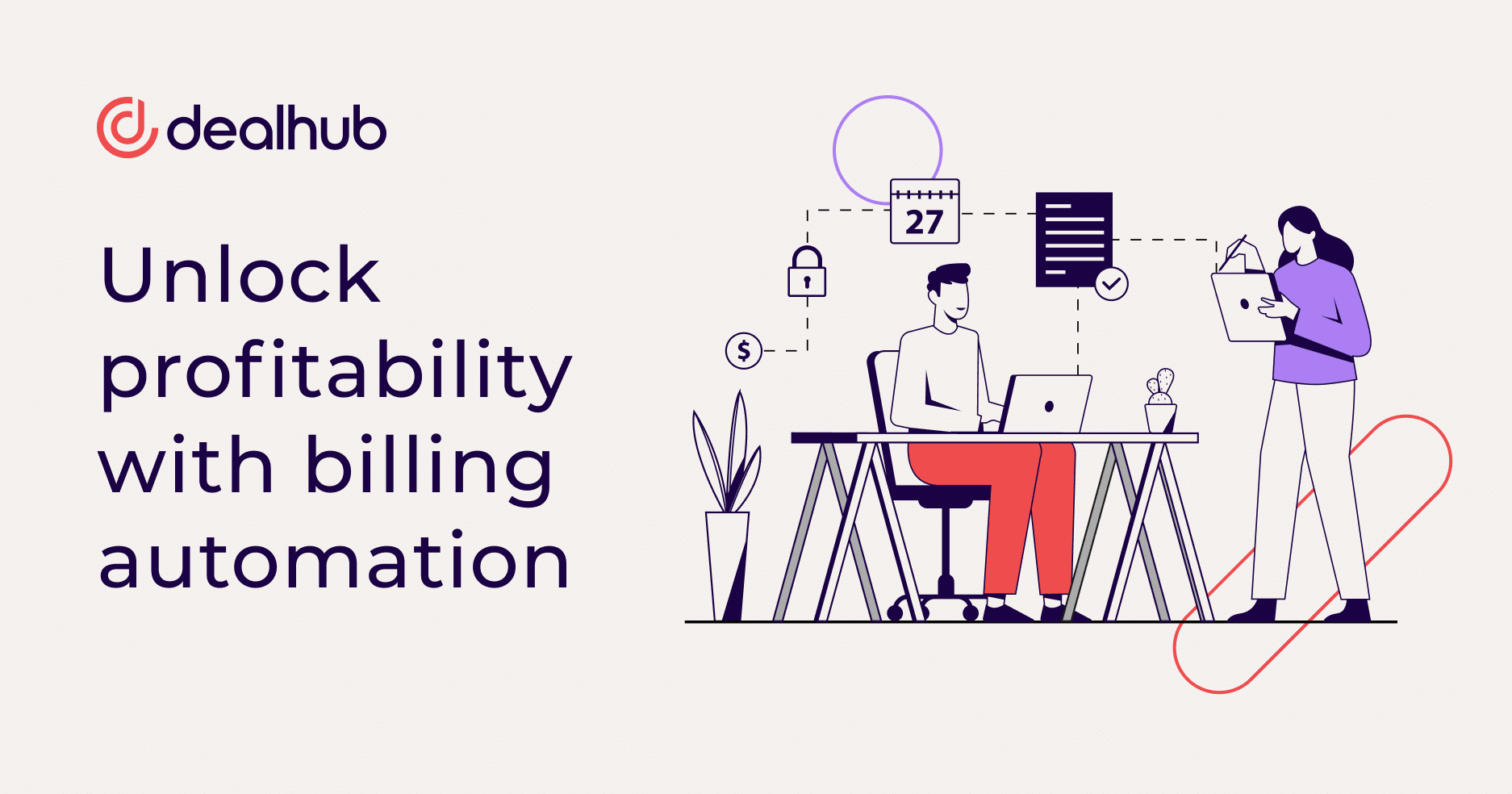Read on to learn how AI and automation are transforming complex billing and how your organization can benefit from these technological advances in SaaS operations.
Traditional billing processes are so yesterday
Gone are the days of traditional billing methods, which are now largely considered relics of the past. These methods are characterized by manual data entries and are prone to human error. They also lack integration with critical business systems like CRM and ERP, resulting in disjointed operations and a fragmented view of financial and customer data. The inefficiencies stemming from these outdated practices have become formidable obstacles to billing efficiency.
The story of HiBob, a life sciences company, vividly illustrates these challenges. Struggling with its manual and inconsistent renewal processes, HiBob grappled with slow sales cycles, irregular decision-making, and a lack of scalability. These challenges impacted the company’s ability to effectively serve and grow its customer base.
The adoption of advanced automated billing technologies marked a significant turning point for HiBob. The transition to a more efficient system dramatically streamlined its operations. The company experienced a substantial reduction in the time needed to create renewal proposals, slashing it from 30 minutes to a mere 2 minutes. More importantly, this change led to a 137% increase in Net Dollar Retention, a critical metric indicating customer upgrades and retention growth. This shift is not just about improving internal processes; it fundamentally transforms the customer experience, propelling businesses into a new era of digital efficiency and customer-centricity.
Automated billing is the here-and-now
Automated billing is a cornerstone of modern business operations in today’s digital-first world, representing a significant leap from traditional billing methods. This transformation is primarily driven by two key components: automated invoice generation and intelligent payment reminders.
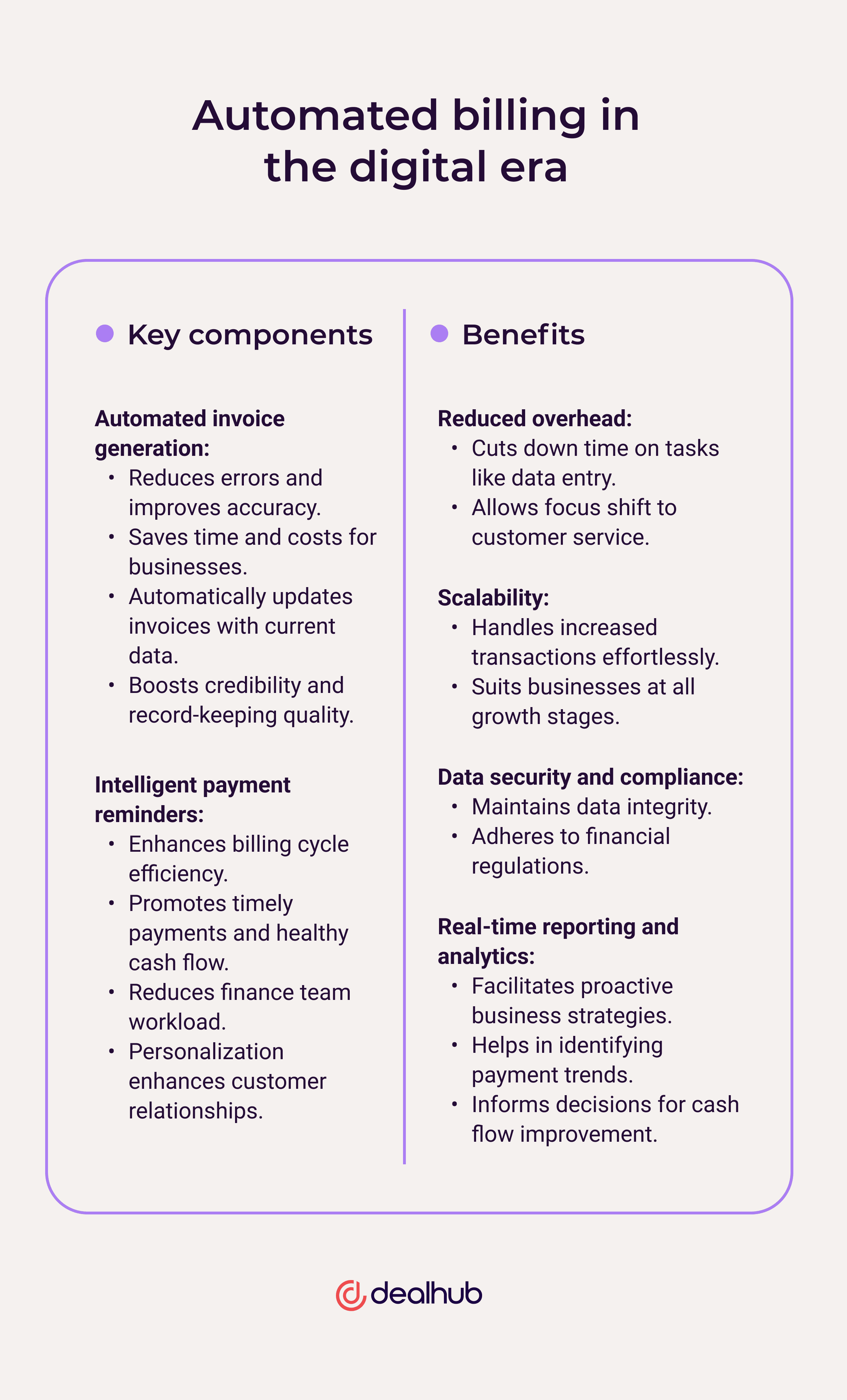
Automated invoice generation
Automated invoice generation eliminates manual data entry, thereby reducing the likelihood of errors and improving overall data accuracy. This automation translates into substantial time and cost savings for businesses, streamlining the billing process, and making it faster and more efficient. Automated invoice generation automatically pulls data from integrated systems and ensures that invoices are accurate and reflect the latest customer interactions and transactions. This accuracy is beneficial for record-keeping and enhances the business’s credibility in the eyes of its customers.
Intelligent payment reminders
Intelligent payment reminders are another facet of automated billing systems, playing a pivotal role in streamlining operations. By automatically notifying customers about upcoming or overdue payments, these reminders significantly improve the efficiency of the billing cycle. This efficiency is twofold: it ensures timely payments, positively impacts cash flow, and reduces the administrative burden on the finance team. Furthermore, intelligent payment reminders can be personalized and customized for more engaging customer interactions. This personal touch can enhance customer satisfaction and build long-term customer relationships.
Benefits of automated billing
The benefits of automated billing extend beyond operational efficiency and customer satisfaction. They also encompass:
Reduced administrative overhead
Automated billing significantly reduces time and effort, especially in repetitive tasks like data entry. For instance, a service provider automates this process instead of manually generating hundreds of invoices and reallocates human resources to customer engagement and service improvement.
Scalability
Automated systems handle varying business sizes effortlessly, ensuring efficiency at every growth stage. A small e-commerce platform, as it expands, can handle an increasing volume of transactions without additional stress on its resources.
Data security and compliance
These systems are crucial in maintaining data integrity and adhering to legal standards. For a financial institution, automated billing ensures compliance with global financial regulations like GDPR or SOX, protecting against data breaches and legal repercussions.
Real-time reporting and analytics
Immediate access to financial data via these systems enables proactive business strategies. For instance, a service company can track payment patterns, identify slow-paying customers, and highlight areas where improvements can be made. They can then implement measures to improve cash flow, such as offering discounts for early payments or adjusting invoicing cycles.
AI for billing is the way of the future
The integration of artificial intelligence in billing systems is not just an advancement; it’s a revolution in how companies manage customer experiences and secure their operations.
Benefits of AI-powered billing
Building upon the foundation of automated systems, AI-powered billing introduces a new realm of capabilities. These systems go beyond just streamlining processes; they enhance accuracy and efficiency through intelligent algorithms. AI’s role in predictive analytics is pivotal, offering deep insights into customer behavior and billing trends, crucial for strategic decision-making. Additionally, AI’s advanced fraud detection capabilities ensure a higher level of security in billing operations. Perhaps most importantly, AI enables a personalized billing experience, tailoring interactions to individual customer needs and preferences, thereby enhancing customer satisfaction and loyalty.
AI-powered fraud detection
AI’s role in fraud detection is increasingly critical in complex billing scenarios. For instance, in a subscription-based model, AI can detect irregularities in payment patterns, such as unexpected spikes in charges or alterations in the frequency of payments. These could signify unauthorized account access or subscription hijacking. AI algorithms also monitor for inconsistencies in payment methods and geographical locations, flagging transactions that deviate from a customer’s typical behavior. This proactive approach in real-time safeguards both the business and its customers from potential financial threats.
AI is elevating the customer experience
The personalization aspect of AI in billing extends to creating more engaging customer interactions. AI can analyze a customer’s payment history and preferences to offer customized billing schedules or payment methods. For example, AI might suggest an early-payment discount plan if a customer frequently pays invoices early. Additionally, AI can generate personalized product or service recommendations on invoices, enhancing cross-selling opportunities. This level of customization improves the customer experience by making billing interactions more relevant and beneficial, thereby fostering deeper trust and loyalty.
Advances in billing technology today and tomorrow
Billing technology is rapidly evolving to accommodate the complexities of modern business models, such as Software as a Service (SaaS), subscription-based services, and usage-based billing. These models demand both flexibility in billing and precision and scalability, challenges that new billing technologies are increasingly equipped to handle.
Adapting to complex business models
Today’s billing systems are designed to be highly adaptable, catering to the diverse needs of different business models. For SaaS companies, this means managing recurring revenue streams and subscription renewals efficiently. Subscription-based services require systems that can handle varying billing cycles and customer preferences. Usage-based models, increasingly popular in industries like telecommunications and utilities, need billing solutions that can accurately track and bill based on consumption or usage metrics.
The importance of technological advancements
Staying abreast of technological advancements in billing is crucial for businesses. It’s not just about keeping up with competitors but also about meeting evolving customer expectations. Customers expect transparent, accurate, and user-friendly billing processes. Businesses that lag in updating their billing technologies risk losing customers to more tech-savvy competitors.
Future trends we’re predicting in billing technology
Looking ahead, several trends are poised to shape the future of billing technology:
- AI and machine learning: These will not only automate billing processes but also offer predictive insights, like an AI system accurately forecasting revenue based on payment trends, thereby assisting in strategic decision-making.
- Blockchain technology: Imagine a billing system where every transaction is securely and transparently recorded on a blockchain, significantly reducing fraud and errors and enhancing customer trust.
- Increased personalization: Future billing systems will harness customer data more effectively, providing highly personalized billing options like dynamic pricing tailored to individual consumer usage patterns.
- Integration with other business systems: We will see more holistic integration, where billing systems seamlessly interact with CRM and ERP systems, offering a comprehensive and real-time view of customer financial interactions, vital for cross-departmental coordination and strategic planning.
The transformative power of AI and automation in billing
Integrating AI and automation into billing systems has significantly transformed how businesses operate. This evolution is not merely a change in process but a strategic shift towards more efficient, accurate, and customer-centric operations.
AI and automation have revolutionized billing operations by enhancing accuracy and efficiency, reducing manual errors, and offering customers a more personalized billing experience. These technologies have automated routine tasks, allowing businesses to focus on strategic initiatives and customer service. AI, in particular, has brought a new level of sophistication to billing processes, with capabilities such as predictive analytics and fraud detection, which not only streamline operations but also secure them.
The message for businesses is clear: embracing AI and automation in billing is no longer optional but essential for maintaining a competitive edge. In a rapidly evolving business landscape, these technologies are key differentiators, enabling companies to adapt quickly to market changes, meet customer expectations for accuracy and customization, and safeguard their operations against fraud. By adopting these technologies, businesses are not just upgrading their billing systems but positioning themselves for success in a digital-first world. The future of billing is here, and it is automated, intelligent, and customer-focused.







